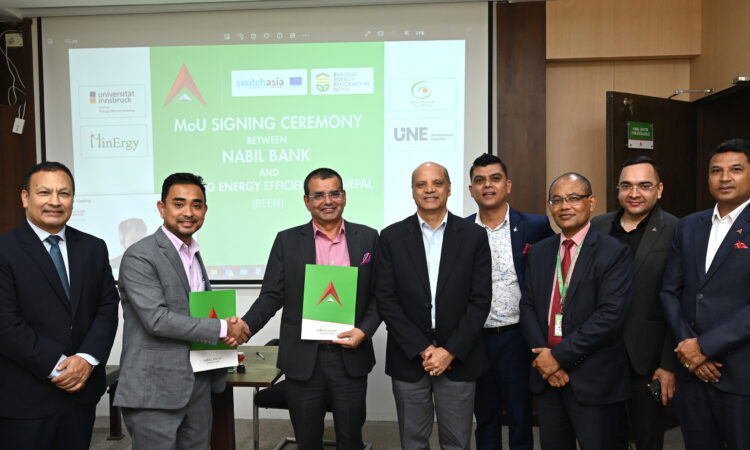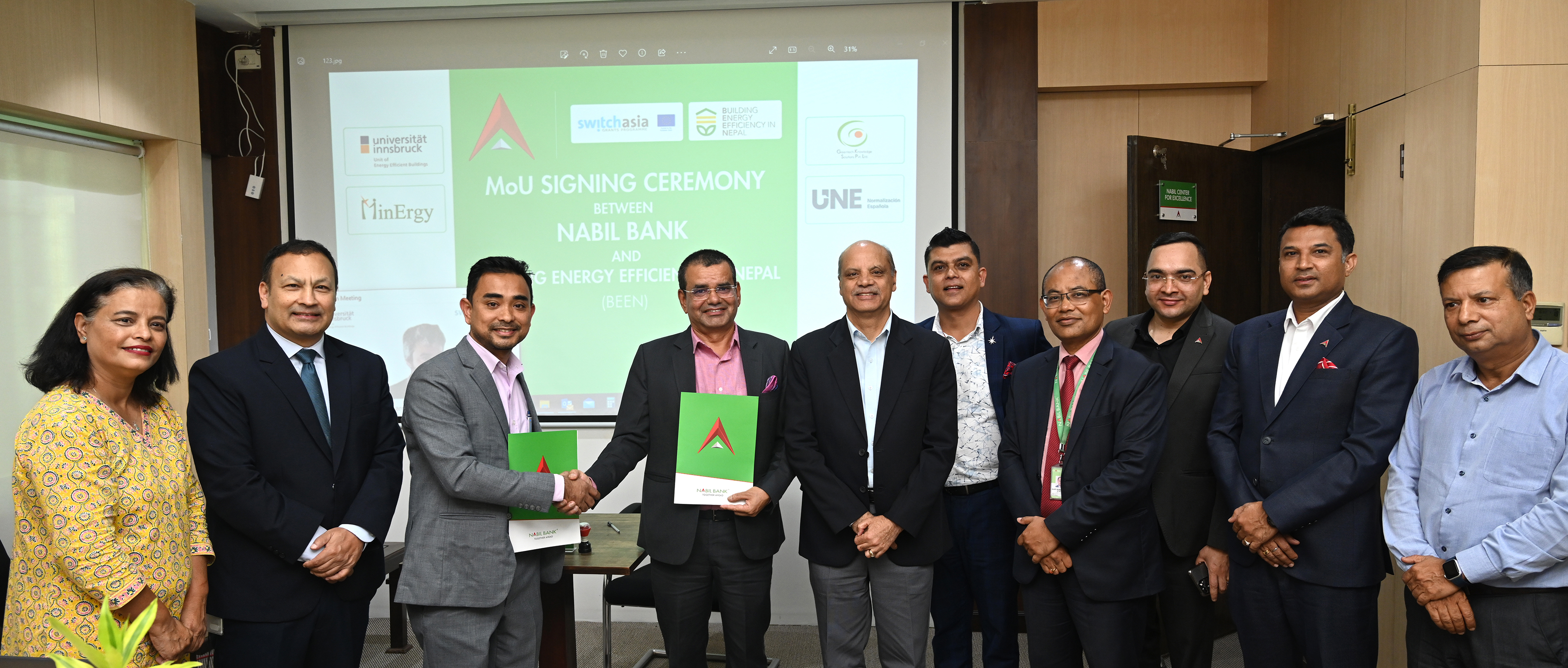

Kathmandu, October 6
Nabil Bank has signed a Memorandum of Understanding (MoU) with Building Energy Efficiency in Nepal (BEEN-Project) funded by the European Union (EU) to collaborate for the promotion of energy-efficient and sustainable housing in Nepal.
Gyanendra Prasad Dhungana, Chief Executive Officer (CEO) of Nabil Bank, and Daniel Neyer, Project Leader of the BEEN Project, signed the agreement amidst other professionals present during the MoU signing ceremony.
According to the bank, the partnership will specifically roll out activities on developing innovative financing packages, build technical capacities to assess financial packages and facilitate linkages to access preferential financial schemes for the promotion of sustainable and energy-efficient buildings.
During the program, Upendra Prasad Poudyal, Chairman of Nabil Bank, emphasised the bank’s ongoing commitment to addressing climate change and its efforts to mitigate global warming. He highlighted the pivotal role that the banking sector plays in addressing climate emergencies.
“Constructing energy-efficient and sustainable buildings not only benefits the environment but also positively impacts our community and economic cycle,” he said mentioning that achieving net-zero emissions by 2045 will necessitate significant investment.
In pursuit of a shared objective to promote and raise awareness about sustainable housing, Nabil Bank has launched the ‘Sustainable Housing Loan’ program. BEEN is collaborating by offering technical expertise to define the parameters, as well as providing support in training, and promoting awareness of sustainable housing practices.
CEO Dhungana highlighted that Nabil Bank is actively advancing sustainability through various initiatives, including the promotion of electric vehicle financing and sustainable housing loan products. Additionally, the bank is integrating other sustainable practices into its daily operations.
Project Leader Neyer expressed his delight at collaborating with Nabil Bank to advance sustainable and climate-responsive building design in Nepal. He said that through this partnership, the BEEN Project aims to develop innovative financing packages, enhance technical assessment capacities, and establish links for accessing preferential financial schemes.
The project is funded by the EU under its SWITCH-Asia Program, which focuses on promoting low-carbon, resource-efficient, and circular economy practices through the EU Green Deal and Global Gateway. Neyer expressed optimism about jointly advancing sustainability for a brighter future.
Dr Ranjan Prakash Shrestha, Senior Program Manager at the Delegation of the EU to Nepal, commended Nabil Bank for its consistent commitment to sustainable banking practices.





